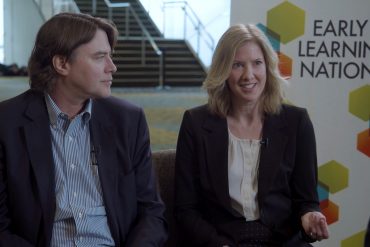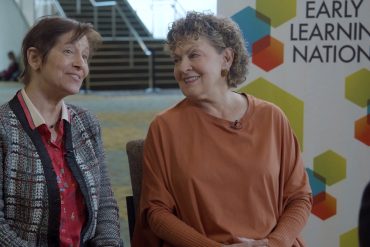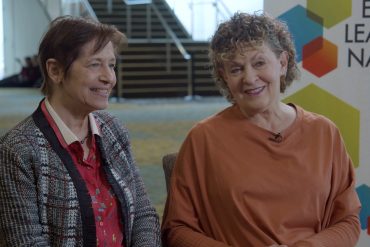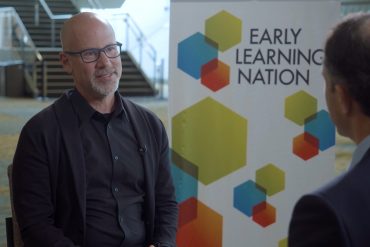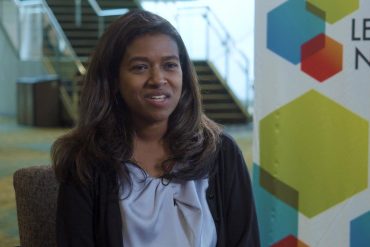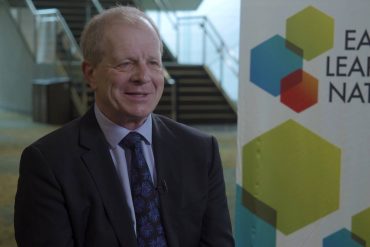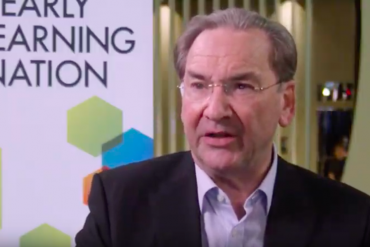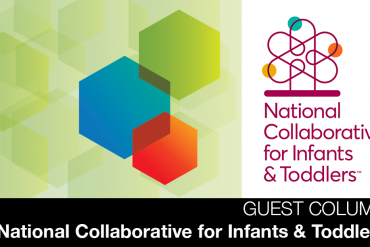Executive function – the skills to focus and manage tasks – is, of course, central to childhood development. Given that, measuring executive function becomes imperative. How does that work? University of Minnesota professors Stephanie M. Carlson & Philip David Zelazo explain their research and the powerful tool they’ve created. Filmed for Early Learning Nation’s Mobile Studio at the Society for Research in Child Development’s biennial meeting in Baltimore, MD, on March 22, 2019. #SRCD19
[molongui_author_box layout=slim box_background=#e6e6e6 profile_layout=layout-3 show_headline=no]
According to Roberta Michnick Golinkoff & Kathy Hirsh-Pasek – researchers and co-authors of “Becoming Brilliant, What Science Tells Us About Raising Successful Children” – language is the single best predictor of how young children will do in school. That’s why they’ve created an innovative, easy way for practitioners to measure students’ verbal progress. Filmed for Early Learning Nation’s Mobile Studio at the Society for Research in Child Development’s biennial meeting in Baltimore, MD, on March 22, 2019. #SRCD19
The pressure to over-program kids often seems endless – so much so that a simple, old-fashioned idea has fallen to the side: Children should play. Roberta Michnick Golinkoff & Kathy Hirsh-Pasek – researchers and co-authors of “Becoming Brilliant, What Science Tells Us About Raising Successful Children” – explain their “Learning Landscapes” program, where they help local municipalities turn public spaces like bus stops into child-friendly play zones.
When University of Maryland Associate Professor Geetha Ramani and her colleagues visit early learning classrooms, they’re known as the “game people.” Ramani’s research shows not only the importance of teaching math skills, but also the effectiveness of what might seem like an obvious tactic: Make it fun.
When University of Maryland Associate Professor Geetha Ramani and her colleagues visit early learning classrooms, they’re known as the “game people.” Ramani’s research shows not only the importance of teaching math skills, but also the effectiveness of what might seem like an obvious tactic: Make it fun.
How and why do children become aggressive – or even violent? How can we understand the true causes – and recognize the signs – before they take hold? Kenneth A. Dodge, Pritzker Professor of Public Policy at Duke University explains the important research that can help children and families. Filmed for Early Learning Nation’s Mobile Studio at the Society for Research in Child Development’s biennial meeting in Baltimore, MD, on March 22, 2019. #SRCD19
Happy Spring! Your spring fever is kicking in, you’ve got a ton on your plate and pollen is already making...
Herding up the recent news so you don’t miss out on all the goods: Our friends at ZERO TO THREE...
What’s the business case for increased business investment in local early education programs? Bill Canary, Alabama businessman and chairman of Canary & Co., who has spent years at the intersection of business, public policy and education – including early education – explains.
For many children in India, getting to early education centers is impossible while their parents work long hours at often temporary jobs. So what if early education centers traveled to kids instead? Executive Director Sumitra Mishra describes how Mobile Creches has been doing just that for 50 years.
Identifying disorders like anxiety or depression in children is challenging and important. What if it could be done quickly?
This article, the first in a new series, will highlight efforts being led by local, state and national partners of the recently launched National Collaborative for Infants and Toddlers (NCIT) to advance promising prenatal-to-three policies and programs that create and expand family support systems.


